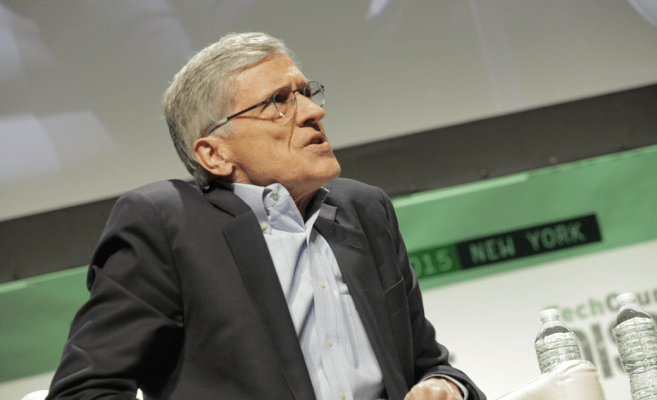It’s Friday, so you deserve a modest respite. Happily, the Chairman of the FCC, Tom Wheeler, gave a speech today to The Brookings Institution that should provide sufficient argument fodder for the full weekend, at least among policy dorks wonks.
During his speech, which touched on a number of issues including net neutrality, spectrum and broadband penetration, Wheeler said the following [via prepared remarks]:
Since we come together today on the heels of the D.C. Circuit’s decision rejecting requests to stay the Open Internet Order, let’s begin by addressing the relationship between broadband network openness and investment. As you know, this was a big argument by the ISPs in their stay request; that somehow assuring that networks are open would erode the incentive to invest.
Fortunately, there is a disconnect between what is said in Washington advocacy and what happens in the market. While a few Big Dogs are threatening to starve investment, others are stepping up. The CEOs of Sprint, T-Mobile, Cablevision, Charter, and Frontier have all publically said Title II regulation does not discourage their investment. Recent transactions, both announced and rumored, point to the same conclusion. And, of course, the post-Open Internet announcements by AT&T, Bright House, CenturyLink, Cincinnati Bell, Comcast, Cox Cable, TDS Telecom, and Time Warner Cable about their plans to expand their broadband service certainly speak for themselves.
Among fans of net neutrality, those paragraphs read like vindication. To political, philosophical and economic — Verizon! — foes of net neutrality, they are likely slightly harder to digest.
It’s still early days. Lawsuits loom, and net neutrality remains sufficiently nascent, so we have to suspend our own judgment of its efficacy this round. But the FCC appears sufficiently confident enough to revel modestly in what is seems to consider success.
It is somewhat notable that the inception of net neutrality — again, this time around — has generated remarkably few headlines. Aside from the first few lawsuits that might take flight, it appears that the Internet has yet to burn to the ground. That’s something that everyone, regardless of your politics, can rejoice in.
